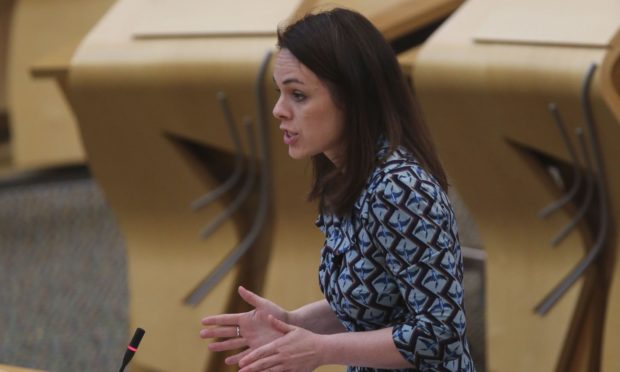A watchdog boss has condemned the Scottish Government over its “wholly inappropriate” bid to avoid scrutiny when handing out top public sector jobs.
Caroline Anderson, the commissioner for ethical standards in public life in Scotland, told MSPs she is concerned about a proposal from Holyrood ministers that they might draw up their own rules for making key appointments.
She feared it would allow such decisions to “fall under the radar”, at a time when progress on achieving greater diversity among public sector bosses was “stalled or declining”.
Her remarks have left the standards commissioner on a collision course with ministers, who say they favour a more “light touch” regulation to “minimise bureaucracy”.
‘A cause for my concern’
Just under 30% of boards have women as their chairperson, while disabled people, those under the age of 50 and people from a BME background are all under-represented.
A consultation has been held this year on a revision to the code of practice governing ministerial appointments to public bodies in Scotland, but Ms Anderson has been alarmed by the government’s response.
She described a bid by ministers to move to a new form of regulation, outwith the existing code, as an “outlier response and a cause for my concern”.
Overall this points to a preference for the avoidance of scrutiny on the part of the Scottish Government in this regard.”
Caroline Anderson
Giving evidence on Thursday to Holyrood’s public appointments committee, she said the proposal was “wholly incompatible with the 2003 Act, and with the intentions of the Scottish Parliament”.
She added: “The Scottish Government has posited that the current code is stifling innovation, which is most misleading.
“They appear to favour following the civil service recruitment model, which is wholly inappropriate, and, in fact, opposite to the practice anticipated by Audit Scotland in its report called Role of Boards.
“The Scottish Government’s response has also posited that Scottish ministers might draft their own code of practice, and that the rule of appointments regulation might sit with another regulatory body entirely.
“Overall this points to a preference for the avoidance of scrutiny on the part of the Scottish Government in this regard.”
‘An incongruous response’
Ms Anderson believes such changes would not help achieve greater diversity in the top public sector jobs.
“This suggested approach would preclude the parliament from holding the Scottish Government to account for a lack of progress on diversity,” she said.
“Essentially, appointment activity would fall below the radar.
“To me this is an incongruous response on the part of the government given the lack of progress on diversity beyond gender parity, with a stalled or declining position, for example, in terms of disability.”
In responding to the consultation, Finance Secretary Kate Forbes proposed changes to the way appointments are made.
“As you will know, Scottish ministers value appropriate and proportionate regulation for our public appointments process and we are committed to delivering a transparent process that is based on merit,” she said.
“I would welcome a commitment to light-touch regulation, which would be
appropriate given the small number of appointees involved coupled with the oversight that you already employ via the advisers.
“It would support delivery of the merit-based approach and minimise bureaucracy and other impediments to an open, inclusive and transparent process that is focused on ensuring our public services remain effective and reflective of the communities
they serve.”
‘Transparent process’
A Scottish Government spokesperson said: “Scottish Ministers value appropriate and proportionate regulation for our public appointments process and we are committed to delivering a transparent process that is based on merit.
“The Scottish Government response to the consultation highlighted the need to minimise bureaucracy and other impediments to an open, inclusive and transparent process. We will write to the committee to clarify the issues raised and look forward to the consultation conclusions in due course.”

